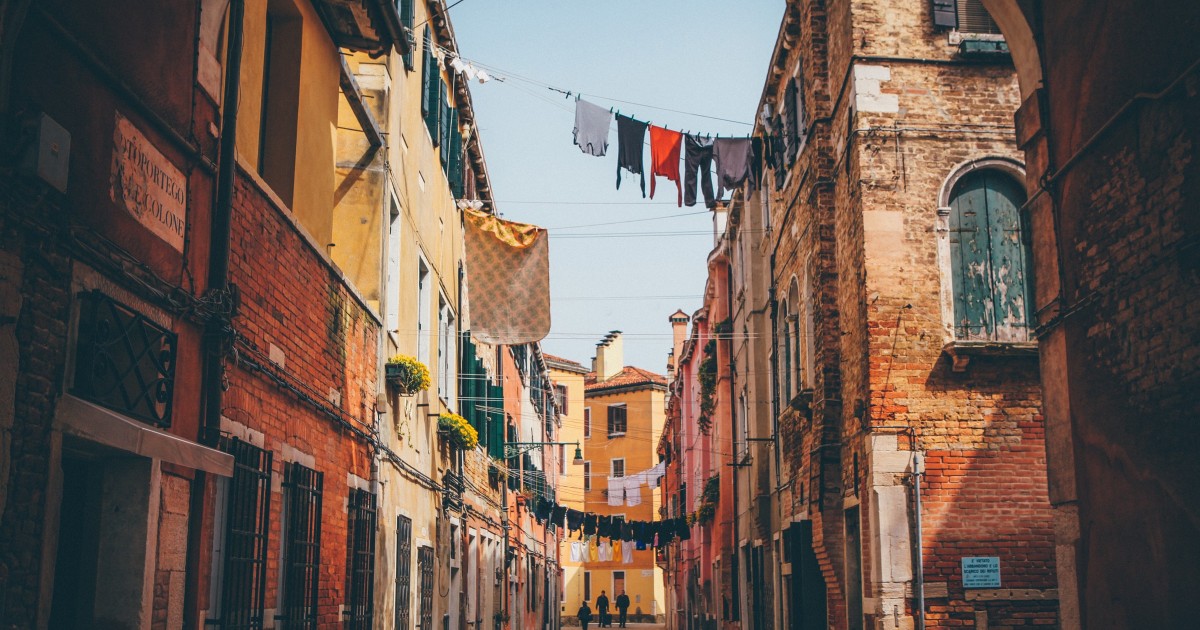8 things to know before moving to Italy
6 min read
Living and working abroad and moving to Italy is an exciting prospect but planning for a big move abroad can be stressful, especially with the added uncertainty that 2020 brings. And you are not alone: according to the latest government figures, Italy is home to over 5 million foreign residents amounting to 8.2% of the country’s population. With everything Italy has to offer, from a pleasant climate to its relaxed way of life and world-famous gastronomy, that number is set to increase, with a life in Italy more appealing than ever in the midst of the coronavirus pandemic across the world. Therefore, if you’re thinking of moving to Italy as an expat, at idealista we are here to help: it’s time to have a look at some important things that you need to know before moving to Italy, from paperwork and finances to culture and customs.
Learn some Italian before moving
Moving to a new country involves embracing a new culture, and with this comes what may be a brand-new language for many. Even if you are planning to move to an area that is already home to expats from your native country, it is always a good idea to brush up on your Italian language skills before you move for several reasons. Although English levels are improving in Italy, even in the most touristy areas, you’ll struggle to find Italians who are fluent in English and it’s always appreciated if you have some Italian to get by.
It’s a good idea to learn some phrases before you go, or you could also sign up to language school once you touch down in Italy. It is often reported that expats that make the effort to learn the language of their new home, in this case Italian, generally report higher satisfaction levels with their new life, and besides being a useful factor in finding a higher paid job, being able to speak and understand at least some Italian will also be of great help if you plan to rent or buy property in Italy.
Prepare your paperwork
When people move to Italy, very often they are be astounded by how much paperwork there is to do, and also by how little of it can be done online. The online process has slightly improved due to the coronavirus lockdown, but in most cases, you should still prepare yourself to stand in queues in public offices. As an expat, you will have to apply for several different items of paperwork once you arrive, such as your codice fiscale, or new residency documents if you’re British and are affected by Brexit. The process can be frustrating if you aren’t prepared so a word of advice: the level of professionalism and knowledge among officials and civil servants varies radically from province to province in Italy, as do the processing times and procedures, so be patient and assertive and it’ll all be worth it in the end.
Cost of living
The ease and beauty of the Italian lifestyle, such as being able to eat ice-cream all year round without judgement, does come at a premium price, as Italy is reported to be one of the most expensive countries in Europe in 2020. Cost of living in Italy does significantly vary depending on where you are based, with the northern part of the country generally wealthier and more expensive compared to the southern regions. Keep in mind that prices in Italy’s big cities, such as Milan, Rome and Florence are also among the most expensive in the country, largely due to tourism. Find out about the cheapest places to buy property in Italy in 2020.
Health insurance is a good idea
Italy has its own equivalent of the NHS, known as the “Servizio Sanitario Nazionale” (SSN) which has a generally good reputation, though like many other things in Italy, the standard of care also tends to vary across the country. Registering is straightforward for those who are from the EU, although if you are British, you can check out our guide on what will happen with healthcare in Italy after Brexit. In spite of this, many expats who move to Italy opt for private health insurance due to increasing pressure on the public health service. Having private cover in Italy generally means you will get an appointment quicker, as well as avoiding potential Brexit cover problems if you are British.
Beware of conditions for renting apartments or purchasing property in Italy
Buying and renting property in Italy is not going to be the same as it is in your home country and is especially challenging if you don’t speak any Italian. For this reason, it’s important to do your research and if necessary, seek the help of a professional who, if nothing else, will be able to help you through the Italian web of paperwork. Things can often be done illegally, with many advertisers trying to offer you a flat for rent without a contract, or state that you must pay in cash, for example. For advice on how to get around these issues and others, check out our guide on renting property in Italy, as well as the potential pitfalls of buying property in Italy.
Opening a bank account
Finances are another important point to consider before moving to Italy and if you’re considering living in the country on a long-term basis, then opening a bank account is a highly necessary step (and yet more paperwork). Once again, opening a bank account in Italy is not always easy for foreigners due to the fact that many banks refuse foreigners who don’t have a residency permit. Doing your research of different banks is therefore very important and you should also be aware that certain banks will charge you some monthly fees if you don’t meet certain conditions. Have a look at our useful guide on how to open a current account in Italy.
Coffee is in the blood
It is no myth that Italians love their coffee, with many natives having six or seven espresso shots on the average day. Take note that Italian coffees are much smaller than the typical Americano you might order in the UK, and that the famous cappuccino is generally a breakfast drink; if you order one after around 11am you may start to get strange looks. The coffee bar or simply ‘bar’ in Italy is a real institution; a place where people of all ages gather for coffee, amongst other tasty delights, and is one of the main elements in the centre of a typical Italian social life. Check out our Italian coffee guide so you can order like a local.
Do your research
As with moving abroad in any situation, it is vitally important to do your research to avoid any unpleasant surprises upon arrival in Italy. The things that we have touched on in this article are just some simple guidelines to help you know what to expect when you move to Italy, but by no means an exhaustive list of everything you need to consider. Therefore, to make your move to the Bel Paese as straightforward as possible, do as much research as you can, including thorough research of the area you plan to live in, schools, local services and job opportunities, to the weather, local food and legal procedures.



